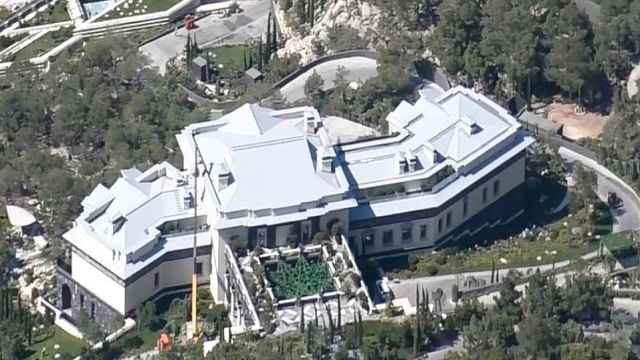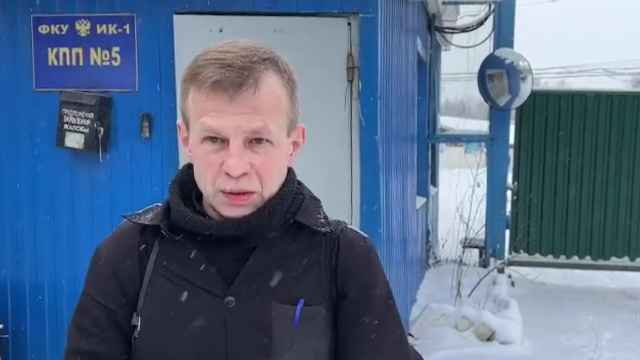No. 2 oil producer LUKoil is trimming investments on the home front where it is snared by high oil taxes and stockpiling cash for overseas ventures it sees as the only source of output growth.
The company reported a 37 percent rise in third-quarter earnings to $2.8 billion and attributed the strong results to higher oil prices, which increased by a third year on year to $77 per barrel in the third quarter.
LUKoil plans to invest $900 million in West Africa in 2011-12, a company representative said Tuesday following the release of its third-quarter financial results, underscoring its push away from Russia, the world’s largest crude exporter.
“West Africa is the most attractive international growth region,” Andrei Gaidamaka, head of the firm’s investor relations told journalists.
LUKoil, a vocal opponent of Russia’s oil taxation regime, has said in the past that without tax reform there is little incentive to develop new projects and that its domestic output will decline while it boosts production abroad.
“The reduction in drilling footage was due to implementation of the company’s strategy aiming at strengthening its financial position through focusing on high return projects and boosting cash flows,” LUKoil said.
In the third quarter LUKoil spent $1.5 billion on capex — 13 percent less than in the year ago period, which resulted in lower drilling volumes in its West Siberian brownfields.
“The bottom line is they did not overspend on capex. This is key because investment in Russia doesn’t pay off. It makes more sense to invest outside of Russia, which LUKoil is doing,” said Alexei Kokin, an oil analyst at UralSib.
For the first nine months of the year capex was $4.65 billion, while free cash flow soared to $7 billion, more than triple the $2.27 billion the company had as of Jan. 1, 2010.
“In the past the market criticized LUKoil for spending too much on upstream projects in Russia, but now they are on track to reduce capex, and even they are doing a better job than Rosneft at reducing their capital commitment,” said oil analyst, Ildar Davletshin at Renaissance Capital.
“Given the budget deficit and weak economic recovery it is unlikely to expect huge tax breaks any time soon and with this uncertainty, if I were a minority investor, I would like to have my company spend less in capex and more on dividends,” he added.
Meanwhile, LUKoil continues to invest in its international upstream assets in West Africa, Central Asia and Iraq, where it has a 56 percent stake in the giant West Qurna-2 oil project.
The global oil industry sees Russia’s tax regime, with a mineral extraction tax and export duty that change along with the price of oil every month, as highly unfavorable for new investments.
Producers have long been lobbying for lower levies and threatening reduced investment.
But as oil taxes account for 44 percent of Russia’s budget, reform has proved sluggish.
A Message from The Moscow Times:
Dear readers,
We are facing unprecedented challenges. Russia's Prosecutor General's Office has designated The Moscow Times as an "undesirable" organization, criminalizing our work and putting our staff at risk of prosecution. This follows our earlier unjust labeling as a "foreign agent."
These actions are direct attempts to silence independent journalism in Russia. The authorities claim our work "discredits the decisions of the Russian leadership." We see things differently: we strive to provide accurate, unbiased reporting on Russia.
We, the journalists of The Moscow Times, refuse to be silenced. But to continue our work, we need your help.
Your support, no matter how small, makes a world of difference. If you can, please support us monthly starting from just $2. It's quick to set up, and every contribution makes a significant impact.
By supporting The Moscow Times, you're defending open, independent journalism in the face of repression. Thank you for standing with us.
Remind me later.





